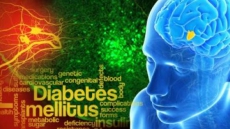An Indian-origin researcher has identified epigenetic protein changes caused by binge drinking, a discovery that could lead to treatment for alcohol-related liver diseases.
"Our research shows that epigenetic modifications in histone (protein) structures occur within the liver as a result of heavy binge drinking," explained lead researcher Shivendra Shukla, Margaret Proctor Mulligan professor at the University of Missouri's School of Medicine.
Epigenetic alterations are changes in genes that are not caused by changes in the DNA sequence or genetic code.
Histones are proteins that act like a spool to compact and organise the thread-like DNA strands which wrap around them.
Histones work to protect the DNA strand and help it function correctly.
Although histone modification does occur naturally, Shukla and his team found that binge drinking results in unnatural modifications to histones.
In turn, these changes adversely affect how a person's genetic code is interpreted and how it is regulated.
"Every response in the body is due to alterations in proteins. Binge drinking is an environmental trigger that negatively affects histones by altering the correct binding of DNA," Shukla informed.
"This initially causes inflammation and damage to the cells as they form, but it is also eventually the cause of more serious diseases such as cirrhosis and cancer," he maintained.
Binge drinking can create an inflammatory response in the liver that is like a cluster bomb, sending out various damaging signals to other organ systems in the body.
"If those organs are working at a lower level of function, then a whole host of physiological processes are affected as a consequence of binge drinking," Shukla noted.
The paper appeared in Hepatology International, the journal of the Asian Pacific Association for the study of the liver.





